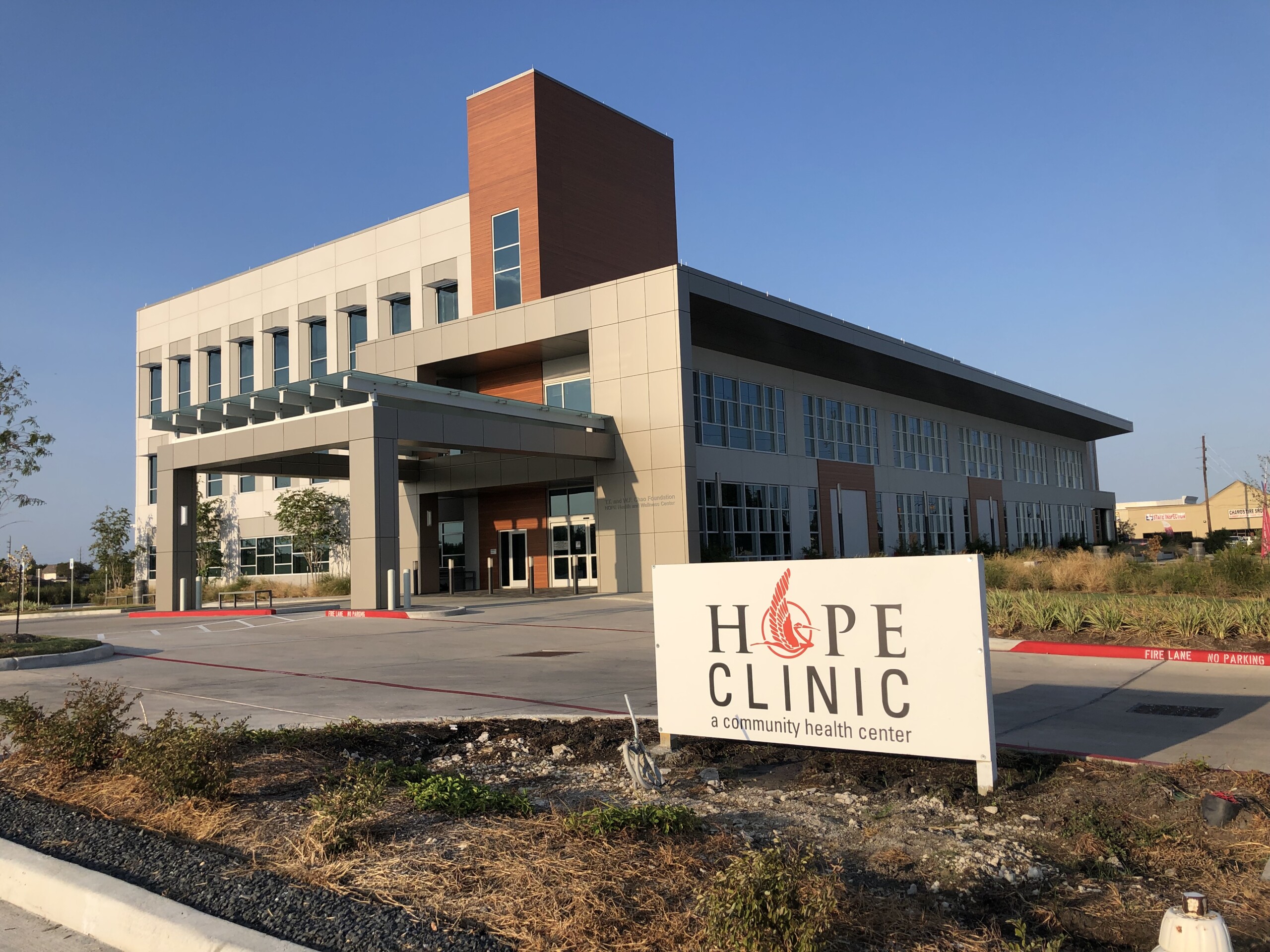 The three-story HOPE Clinic opened only six months ago in Alief and it’s already drawing an influx of 20 to 30 new patients a day.
The three-story HOPE Clinic opened only six months ago in Alief and it’s already drawing an influx of 20 to 30 new patients a day.
At 13930 Bellaire Blvd. in the International Management District, the T.T. and W.F. Chao Foundation HOPE Health and Wellness Center Services includes a pharmacy with discounted prices, dental care, and an eye clinic, as well as Ob/GYN, pediatric and x-ray/imaging services.
The 70,000-square-foot building rises above its neighbors with its rectangular lines clean and sharp. Construction started in October 2021 and ended in January 2023, the product of a $33 million fundraising campaign. About a third of the space in the clinic is being used so far since opening at the end of March.
The Asian American Health Coalition started HOPE Clinic in 2002 as a part-time operation without its own building. Today the whole system handles 180,000 patient visits a year in multiple locations, said Dr. Andrea Caracostis, chief executive officer.
The new clinic serves more than 50,000 patients and has the capacity to go up to 200,000 over the next five years. She expects much more growth as additional providers are added.
In rented space, HOPE also runs two clinics in southwest Houston and two in Aldine, one of which is school-based and opened about a month ago, Caracostis said.
A clinic that operated down the street at was closed and its patients were shifted to the new facility. A pediatrician served at the previous clinic; now new HOPE has three. Similarly, the previous clinic had one Ob-GYN and Caracostis expects two more to start work in September at the new clinic.
“We’ve added additional family medicine providers and we’re still hiring,” she said.
HOPE clinics provide healthcare to patients regardless of their ability to pay and provides services in 30 languages, including Mandarin, Cantonese, Vietnamese, Korean, Burmese, Arabic and Spanish.
The facility was also designed to serve as an emergency shelter with its own clean water supply and electricity sources.
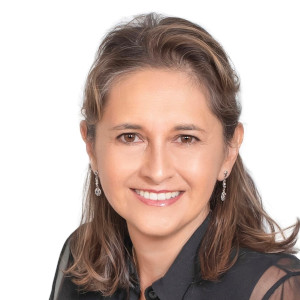
Dr. Andrea Caracostis
One of its biggest obstacles to growth, however, is a staffing shortage that Caracostis called “incredible.”
“After COVID and during COVID, people left the health industry in droves. We lost many, many of our nurses,” said Caracostis. “People didn’t want to be exposed. They didn’t want to take COVID exposure back home. They didn’t want to get sick themselves.”
Those who remained working in healthcare faced long hours and additional stresses that Caracostis said burned through the whole healthcare system.
“Salaries are really high in the health industry right now and there’s not enough staff. We have a hard time right now hiring our medical and dental assistants.
“Hopefully, as the world normalizes, people will start coming back to the industry,” she said. “It’s definitely affected our capacity to grow and our capacity to see patients more efficiently because of staff shortages. The bottom line is we have to raise our salaries many times.”
She said the clinic is competing with bigger entities such as Houston Methodist, Memorial Hermann and Texas Children’s, which have deeper pockets.
“It’s sad to see, in my opinion; more hospitals go up instead of more investment in community and prevention. We should be aiming to have (fewer) hospitals and more preventive public health services and social services so people don’t get to the point that they need a hospital.”
Caracostis sees the new clinic as destined to become a “one-stop shop.”
“Our philosophy has been to wrap our services around women,” she said. “Women are by and large the gatekeepers of the healthcare of their families. If we can ‘capture’ a pregnant woman early in the pregnancy, help her deliver a healthy baby and keep the baby with our pediatrician, then you usually get the mom, the grandmother and father into the clinic. Keeping the family healthy is an economical engine for that family.”
A woman named Dhuha came to the Houston area about 10 years ago from Iraq and sought care at a HOPE outlet.
Staff member Sarwa Numan translated for Dhuha, who was at the clinic recently to have her two-month-old son vaccinated. She also has children ages 13, 8, 7 and all except the oldest were delivered by a clinic doctor.
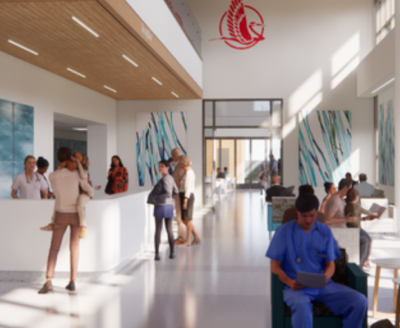 In addition to using the clinic’s pediatric and Ob-GYN services, she said her husband visits a family doctor there.
In addition to using the clinic’s pediatric and Ob-GYN services, she said her husband visits a family doctor there.
“Their system is good for me,” said Dhuha. “It’s convenient and the quality of care is good.”
“We’ve always been a place of choice for most immigrants,” said Caracostis. “Our staff reflects the community that lives here.”
She also hopes the new facility will inspire similar expansions throughout the Houston healthcare world.
“In my opinion we all get sick the same way, whether you’re rich or poor. So providing the utmost care in a dignified way is very, very important. It makes you feel that people actually care about you and how you feel,” Caracostis said. “I hope that it inspires other parts of the city to welcome us in creating environments like this. The community can feel they’re getting world-class care.”
The “one-stop shop” aspect is important, too, she said, so that families don’t have to take a lot of time off work and travel long distances to visit a variety of doctors, pharmacies and labs. In that process, people often don’t complete their care, their treatment and their diagnoses.
So having everything in one stop helps families save time and resources, she said.
Caracostis also wants to do more work with the clinic’s nearby community, for instance, by working closer with schools to make sure youth have access to timely preventive care.
“I feel our goal as really helping to raise a healthier next generation. We have plenty of adults with chronic illnesses, especially diabetes, hypertension, obesity. But I think we have a big opportunity (to help) children really bend the curve. That’s where I see a lot of our resources going — trying to work with schools and moms and helping them.”
— by Karen Zurawski



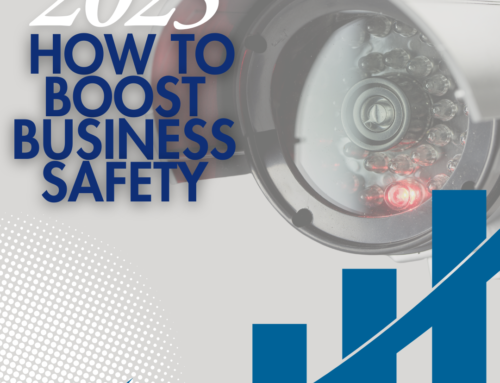
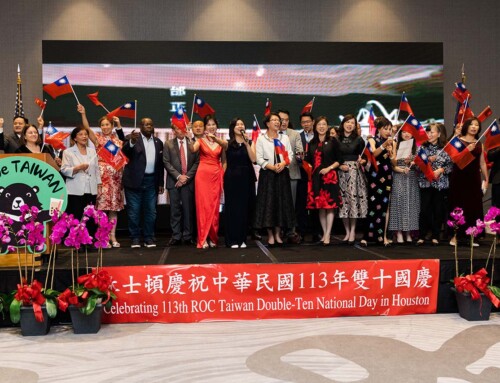
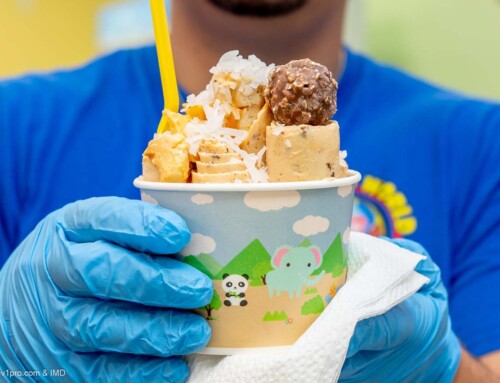

Leave A Comment